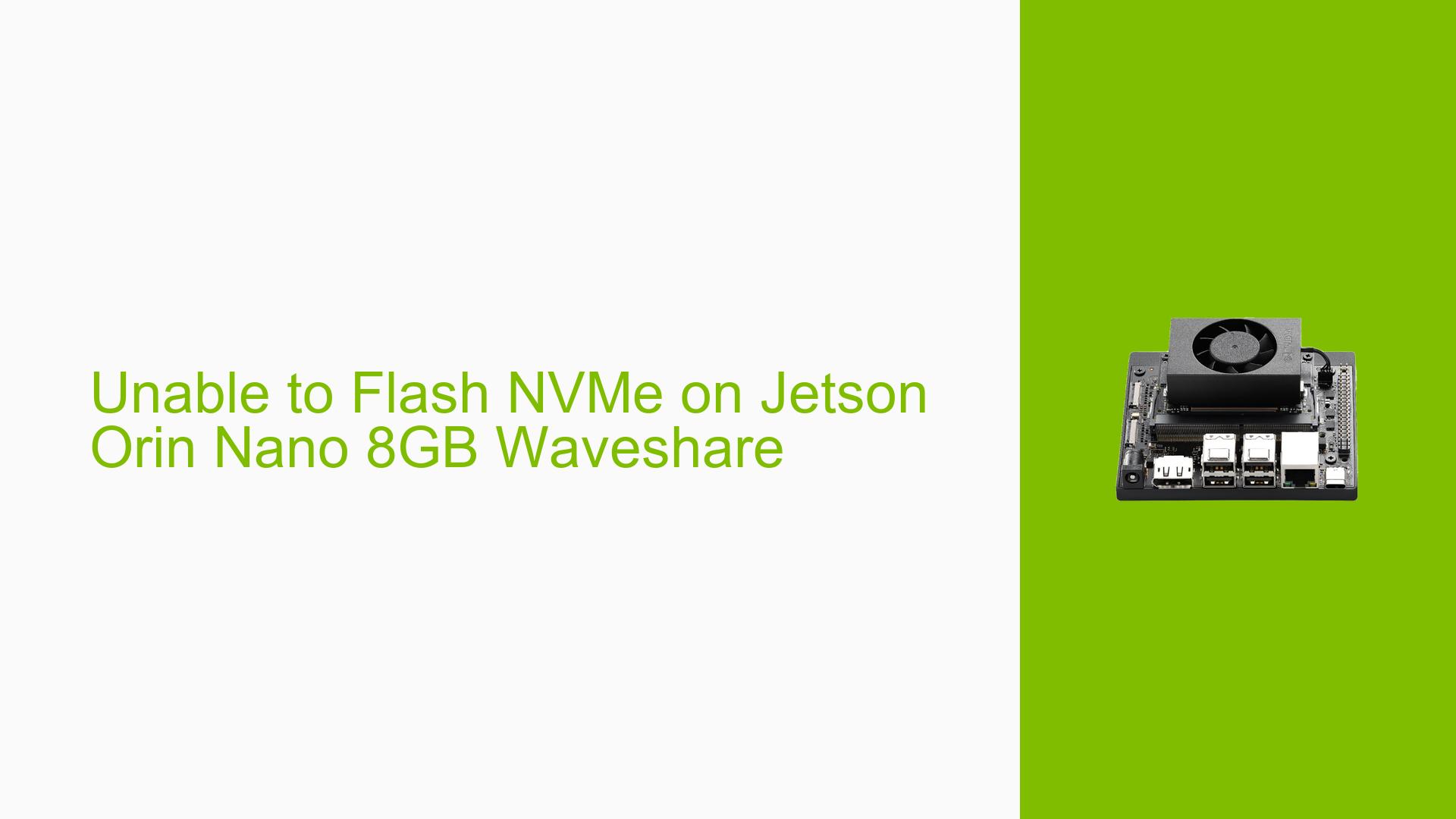Unable to Flash NVMe on Jetson Orin Nano 8GB Waveshare
Issue Overview
Users are experiencing difficulties flashing the NVMe storage on the Nvidia Jetson Orin Nano 8GB Waveshare Developer Kit. The issue occurs during the flashing process using SDK Manager on a Windows 11 PC with WSL2 (Ubuntu 20.04) installed. The problem persists across different SDK versions (5.1.3, 5.1.2, and others) and various storage options. Users encounter multiple error messages during the flashing process, including issues with carveout, TSC controls, and gzip formatting.
Possible Causes
-
WSL2 Kernel Limitations: The default WSL2 kernel lacks RNDIS (Remote Network Driver Interface Specification) support, which is necessary for initrd flash.
-
Incompatibility with Windows-based Flashing: Despite documentation suggesting otherwise, there may be underlying issues with using Windows and WSL2 for flashing Jetson devices.
-
Hardware Connectivity Issues: The use of USB-C ports and Thunderbolt 4 cables might introduce compatibility problems, although this is less likely given that other peripherals are functioning properly.
-
SDK Manager Version Conflicts: Different versions of the SDK Manager may have varying levels of compatibility with the Jetson Orin Nano hardware.
-
NVMe Storage Incompatibility: While unlikely, there could be issues specific to the NVMe storage being used, as the problem persists across different storage options.
Troubleshooting Steps, Solutions & Fixes
-
Use a Native Linux Environment:
- The most recommended solution is to switch from WSL2 to a native Ubuntu PC for flashing.
- This approach eliminates potential issues related to WSL2’s limitations and ensures full compatibility with the flashing process.
-
Alternative Flashing Method:
If using a native Linux environment is not possible, try the following command in the Linux_for_Tegra directory:sudo ./flash.sh jetson-orin-nano-devkit-nvme internalThis method uses a different approach to flash the NVMe drive and doesn’t require kernel rebuilding.
-
Update WSL2 Kernel (Advanced):
For users who must use WSL2, consider rebuilding the WSL2 kernel with RNDIS support. However, this is an advanced solution and may require significant technical expertise. -
Verify SDK Manager Compatibility:
- Ensure you are using the latest version of SDK Manager compatible with the Jetson Orin Nano.
- Cross-reference the SDK Manager version with the official Nvidia documentation for known issues or limitations.
-
Check Hardware Connections:
- Verify that all connections, including USB-C and Thunderbolt cables, are secure and functioning correctly.
- Try using different ports or cables if available to rule out connection issues.
-
Monitor Temperature and Power Supply:
- Ensure the device is not overheating during the flashing process.
- Verify that the power supply is stable and meets the requirements for the Jetson Orin Nano.
-
Clear Existing Partitions:
Before flashing, consider clearing existing partitions on the NVMe drive to ensure a clean slate for the new installation. -
Consult Official Documentation:
- Regularly check the Nvidia Jetson documentation for updates on known issues and solutions.
- Look for specific guidance related to the Waveshare Jetson Orin Nano Devkit.
-
Community Support:
- If issues persist, consider reaching out to the Nvidia Developer Forums or the Waveshare support channels for more specific assistance.
- Provide detailed logs and system information when seeking help.
It is worth mentioning that the official documentation may not always reflect the latest known issues or limitations. As acknowledged by Nvidia representatives, there are plans to update the documentation to clarify the limitations of using WSL2 for flashing Jetson devices. Always refer to the most recent community discussions and official announcements for the most up-to-date information.
